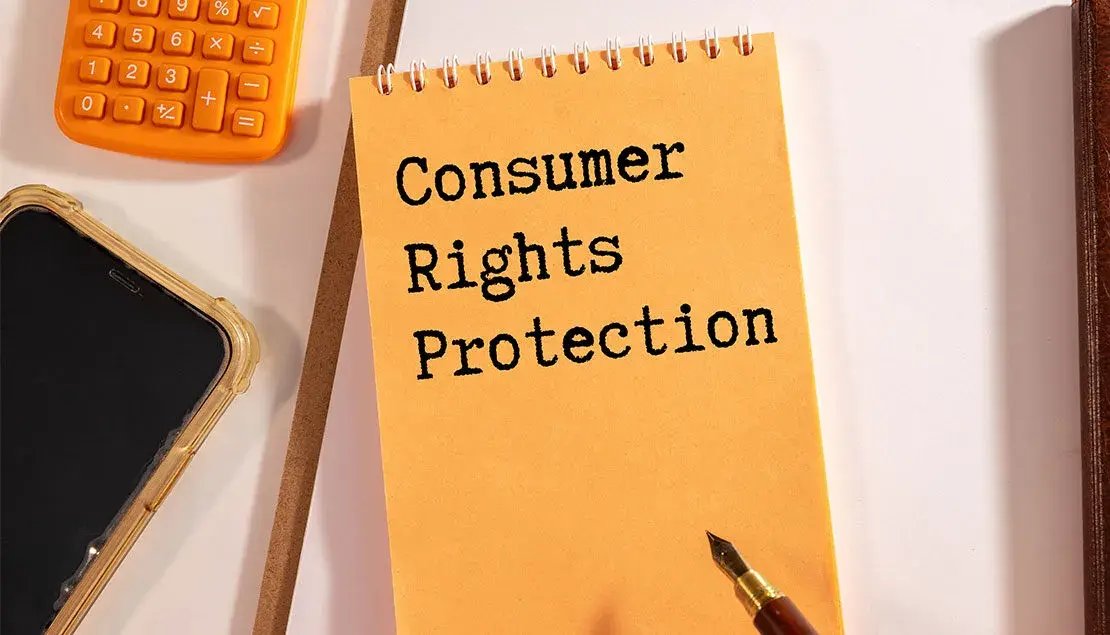Consumer protection laws are essential for safeguarding the rights and interests of consumers, ensuring fair practices, and promoting transparency in the marketplace.
In today's fast-paced and interconnected marketplace, consumer protection laws are critical safeguards ensuring fairness and accountability in business practices. These laws protect individuals from deceptive advertising, unsafe products, and unethical corporate behavior. By empowering consumers and holding businesses accountable, consumer protection laws create a balanced marketplace where trust and transparency can thrive.
Understanding these regulations is essential for both businesses and consumers. They outline rights and responsibilities and shape commerce, fostering a healthier and more equitable economic environment. In this blog, we’ll explore the origins and evolution of consumer protection laws, their practical applications, and how they impact consumers and businesses today.
What Are Consumer Protection Laws?
Consumer protection laws were created in response to the growing complexities and inequities in the marketplace. Their creation can be traced back to the early 20th century when industrialization brought about mass production and widespread distribution of goods. As businesses grew, so did the potential for unethical practices, leading to the exploitation of consumers. These laws were established to balance the system and help ensure that consumers were not unfairly treated or misled.
The need for such regulations became apparent when consumers faced issues like false advertising, defective products, and unfair business practices. The goal was to institute a framework that would hold businesses accountable and provide consumers with avenues for redress. Over the years, these laws have evolved to address emerging challenges, adapting to new technologies and market dynamics, thereby continuously protecting consumer rights.
Key Federal and State Consumer Protection Statutes
Several key statutes form the backbone of consumer protection in the United States. Federally, the Federal Trade Commission Act (FTCA) established the Federal Trade Commission (FTC), which is tasked with preventing unfair or deceptive business practices. Similarly, the Consumer Product Safety Act (CPSA) created the Consumer Product Safety Commission (CPSC) to oversee the safety of products sold to consumers. Additionally, the Pure Food and Drug Act of 1906 made it illegal to sell mislabeled or tampered food and drugs in the United States. This act would later set the stage for the creation of the Food and Drug Administration (FDA). This important consumer protection agency sets food safety standards and monitors standards for food and drugs. The FDA is also tasked with recalling unsafe food and drugs.
States also have consumer protection laws that complement federal statutes. These state laws often provide additional protections and remedies tailored to local consumer needs. Examples include the California Consumer Privacy Act (CCPA) and the Texas Deceptive Trade Practices-Consumer Protection Act (DTPA). These federal and state statutes create a comprehensive legal framework that safeguards consumer interests.
Real-world Examples of Consumer Protection in Action
Real-world applications of consumer protection laws highlight their importance. For instance, automotive companies' recalls of dangerous products like faulty airbags showcase how these laws protect public safety. The FTC's actions against false advertising claims in dietary supplements demonstrate the agency's commitment to truthfulness in marketing.
Another notable example is the enforcement of data privacy laws, where companies are held accountable for mishandling consumer data. These actions protect individual consumers, set precedents that deter future violations, and promote fair business practices.
Additionally, unsafe products have been recalled by the FDA for years in an effort to protect consumers. For example, several recalls have been issued for various talcum powder products after asbestos contamination was found in routine sample checks.
The Role of Regulatory Agencies in Consumer Protection
Regulatory agencies play a crucial role in enforcing consumer protection laws. Agencies like the FTC and CPSC are empowered to investigate complaints, conduct enforcement actions, and impose penalties on businesses that violate consumer rights. They also engage in public education campaigns to inform consumers about their rights and how to protect themselves.
These agencies collaborate with state authorities to address broad and localized issues. By maintaining vigilance and taking proactive measures, regulatory agencies ensure that the marketplace remains fair and safe for consumers.
How Consumer Protection Laws Impact Businesses and Consumers
Consumer protection laws impact both businesses and consumers. These laws require businesses to comply with standards that promote fairness and transparency. While this can mean additional operational costs, it builds consumer trust and enhances brand reputation. Companies adhering to these laws often find that they foster customer loyalty and long-term success.
These laws provide a safety net for consumers, ensuring that their purchases and transactions are protected. Consumers can confidently engage in the marketplace, knowing that mechanisms are in place to address grievances and prevent exploitation. This balance ultimately contributes to a healthier, more equitable economic environment.
Legal Support for Victims of Product Negligence
Victims of product negligence often face significant hardships, but legal support may be available to help them seek justice. Legal Injury Advocates, along with our co-counsel, are dedicated professionals who guide victims through the legal process, ensuring they understand their rights and options. These professional law firms provide robust representation to secure fair compensation for eligible individuals.
Legal Injury Advocates takes a personalized and compassionate approach, recognizing the emotional and financial toll such cases can take. Their commitment to advocacy ensures that victims' voices are heard and their needs are prioritized, helping them navigate the complexities of the legal system with confidence and clarity.
If you or a loved one is a victim of product negligence, contact us today and our team will help you determine if you’re eligible to file a claim.

